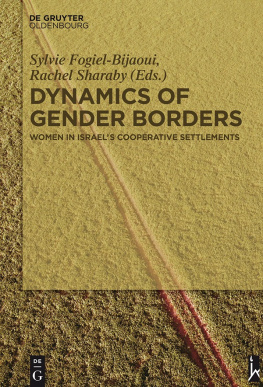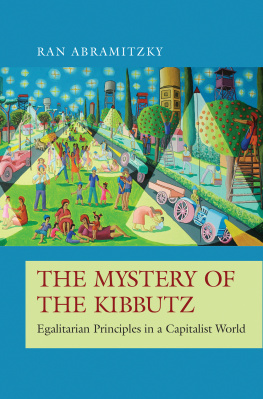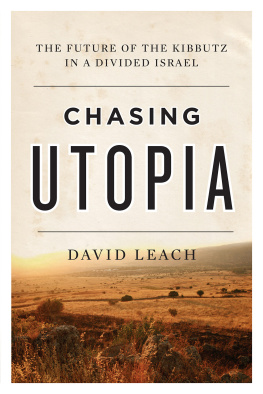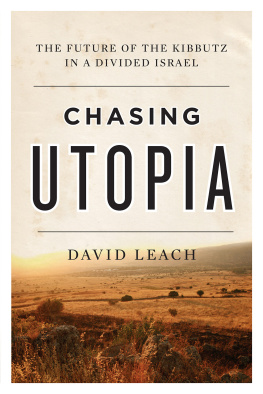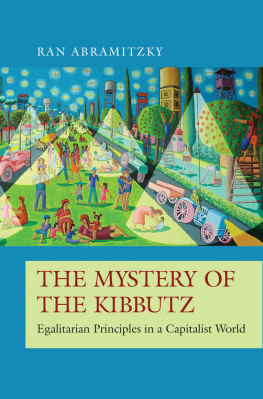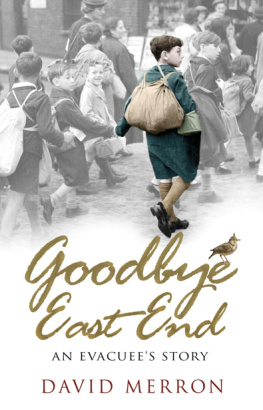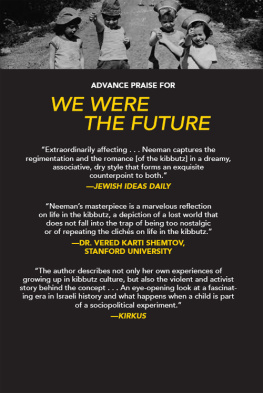Id heard of Israel, of course, but I knew shamefully little about it. In fact, looking back, I now realise I was as shockingly ignorant as I was hopelessly nave. I knew only vague details about the conflicts with the surrounding Arab nations, the Palestine Liberation Organisation or PLO, Middle East terrorism and so on. I had some knowledge of and interest in geography, too. I knew the narrow strip of land on the map at the far end of the Mediterranean Sea was where I intended to travel, and where Id planned to live for at least six months. I could see the region was occasionally in the news and there were some highly contentious political issues concerning the area, but that was about it, really. Id been to Spain and France on family holidays several times, and so imagined in my rather quaint, old fashioned, middle-class English way, that it would be pretty much the same. The country was as much of a mystery to me as was the reason for my visit, which for the life of me I cannot now remember how it all came about. I vaguely recollect there was some connection to an older cousin of mine, Andy, who apparently suggested with some enthusiasm that we both travel to Israel and spend some time on a kibbutz. Andy went to university instead, and I ended up going without him. Id never heard of the word kibbutz, but I remember thinking it sounded exotic, romantic and strangely familiar, as though I were somehow predestined to be connected to it.
I caught a train to Leeds, from my home city of Sheffield, for an interview. Glancing at the address on the letterhead from Kibbutz Representatives, I arrived at the office in good time and rang the doorbell. I was standing at the front door of a large detached house in a prosperous older suburb of Leeds, with tall, mature chestnut trees lining the road on both sides. It was late summer, with just a hint of autumn in the air, and the huge trees shaded the front of the bay window and whitewashed walls of the house in a dappled impressionist light. I was quite nervous and unsure of what to expect. I heard someone approach in quick determined steps from inside, on what sounded like a hard stone floor, and the huge, thick door was opened. A tanned, thick-set bearded man in his forties stood with the edge of the door in his hand looking at me briefly, then a great smile beamed out across his face and he ushered me inside:
Welcome, welcome! You are Jonathan, yes? he said, pushing the door closed behind me.
Yes, I am, I have an interview
Yes, come with me, he replied, interrupting me. With a flick of one hand he indicated for me to follow him.
I am Ori, I am pleased to meet you, Jonathan. He then grabbed my right hand and shook it firmly before dropping it quite abruptly and walking on at a brisk, military pace. He had very thick, curly, fair hair which had as much of a ginger tone to it as it did some encroaching grey. His bushy grey beard fully covered his face, the type with no gaps in growth around the mouth or cheek-bones. He seemed incredibly masculine and physically powerful, and underneath his enviable beard I could see he was most probably a very handsome chap, with quite a square jaw and some chiselled good looks. I immediately imagined he could easily be the type to spend some of his time in Israel, leaping from the back of transport aircraft with an Uzi strapped to his chest.
I was quickly led across the black-and-white chequered tiled floor in the huge churchy entrance hall and up a wide flight of stairs. I was almost running to keep up with Ori, our footsteps clattering, clomping and echoing all around us.
Jonathan is a Jewish name, you know. You do know this? he asked, in a strong and distinctive accent Id never heard before, and which sounded guttural and sloshy, similar to German but with tones of North American English.
No, I didnt know, I replied, following him from the top of the stairs and into a sparsely furnished and very tidy office, with an astonishingly high ceiling and plain white walls.
A huge desk sat almost in the centre of the room in front of a window. It was laden with books and a small scattering of papers. A large shiny black Olivetti typewriter sat at one side of the desk. The sash window behind was open slightly, and the street was obscured by branches from the chestnut tree closest to the house, some of which I could see were already heavily laden with spiky green conker husks.
Yes, Yonatan, Jewish, you see? Its a Jewish name. Are you Jewish? he asked, earnestly, as he sat in his chair behind the desk, looking at me and pointing to a nearby chair for me to sit on. I could just see among all the papers my application form sitting plainly on the top.
No, Im not, actually. Im C of E, Church of England. Not that it really means that much, to be honest.
No, thats okay, its not a problem! Its good you want to come to Israel, this is very good, you know. Have you been before? Do you know what to expect?
No. Its my first visit, I replied, a little hesitantly. I could see he was looking at my application form and was nodding and ruminating to himself.
You will be okay. But you must work, Jonathan, you know this, yes? It can be hard work living on a kibbutz. Everyone must work, this is the whole philosophy behind it, yes?
For the next twenty minutes Ori explained the history of the kibbutz movement, hardly pausing for breath, as though hed explained the same thing a thousand times before, which he probably had. His pale blue eyes fixed my attention completely as he told me with obvious pride how the many kibbutzim had been instrumental in helping to bring about the State of Israel. His hands flailed and chopped around in front of him as he spoke and I remember thinking Id never before seen anyone explain anything in quite such an enthusiastic and captivating manner. I managed to extract a few important kibbutz principles from his talk to me that day, such as a strong work ethic, egalitarianism and brotherhood; everyone working together for the greater good of the kibbutz in a communal utopia. It sounded like paradise.
The early afternoon sun flickered through the leaves of the tree immediately outside and danced across the window behind Ori. His voice was beginning to slow, and he seemed to be coming to the end of his talk. He asked me a few questions about my family, and why I wanted to go to a kibbutz. I probably told him something rather silly and vague such as for the adventure or similar. I was young, fit, healthy and willing. It was no real surprise that I passed the interview. I assumed I had passed, as he didnt tell me otherwise.
Ori handed me a form that I was to take home and complete. This was to confirm my intended date of travel to Israel. He then sprang to his feet and grabbed my hand, shaking it vigorously again.
Jonathan, you will enjoy the kibbutz. Work hard, but have fun too, you know?
Yes, thank you, I replied, being more than a little swept along by Oris highly contagious enthusiasm.
My meeting with him felt right, if you know what I mean; propitious and reassuring. We walked together, slower this time, as though we were now friends, back down the stairs into the cavernous entrance hall. Halfway across the chequered floor, close to the front door, he stopped and shook my hand again, then threw me a warm smile. I heard childrens voices from what I assumed was the kitchen of the huge house, and then a womans voice shouting. It was not an English voice. Id never heard the language before. I assumed it was Hebrew. Ori paused for a few seconds still gripping my hand warmly, as though he would never let it go. Then, while looking into my eyes very intently, he gave me one final piece of valedictory advice, which I couldnt help thinking sounded a little like a warning:
You do know it will change your life, Jonathan, the kibbutz I mean. You
Next page





